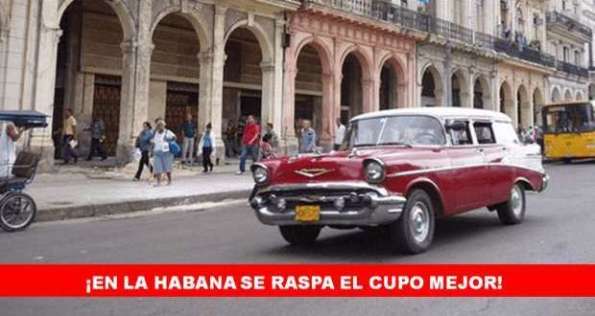
It is 7:30 PM in a commercial shopping district in San Diego, Califormia. Four Venezuelan tourists approach Spanish-speaking customers browsing among tablets, smart phones, flat-screen TVs and laptops with a business proposition.
“If you are going to buy something with cash, please let me pay for it with my credit card and you can give me the money instead. The thing is that in my country, Venezuela, getting hard currency is very complicated,” says a young woman in a slow, deliberate voice.
Venezuelans can find such “swiping-the-card” transactions difficult in a country like the United States where people rarely make large purchases with cash. But on this particular warm autumn night, one Venezuelan is lucky.
A group of Latin American journalists who were attending a workshop in San Diego did some bartering. To understand the official exchange rates and the black market for US dollars in Venezuela requires a quick doctorate in economics.
According to these Venezuelan tourists there are three different exchange rates. The official one is for necessities but varies when it comes to dollars for travel or for purchasing raw materials used in products the government considers luxuries.
In the treacherous streets of Caracas the US dollar trades at a different rate of exchange on the black market. These different types of exchange have contributed to runaway inflation of almost 61% and an uncontrollable rise in prices for staple foods such as powdered milk powder and cornmeal.
Venezuelan tourists describe how an Apple laptop is two and a half times more expensive in Venezuela than in any other country in the world due to the devaluation of the national currency, the bolivar.
Because of the economic crisis, business seizures and rules governing fixed prices, many people — especially those in the middle class — have been forced to turn to the informal economy to weather the storm.
The young Venezuelan woman, a mother with a young daughter, told me that despite having both an undergraduate and a graduate degree, she takes advantage of trips abroad to “swipe the card,” or to buy merchandise on credit to resell in Caracas.
“We’re becoming nothing more than peddlers thanks to Maduro and the way he blindly copies Cuba’s inefficient socioeconomic system and its controls,” she says.
Another Venezuelan bought two Sony Play Station 3 video games. “One is for my kids; the other is to sell. I have to take advantage of the $1,800 I got at the official exchange rate. If I can lay my hands on a few hundred dollars, I can exchange them for 110 “bolos” (bolivars) when I get back to Venezuela. And with the money from the sale of the video game, I’ll probably be able to have decent Christmas dinner.”
Whether it be California, Florida or Havana, the unstoppable economic crisis has turned many Venezuelans into brokers. In central Havana’s Carlos III shopping mall Venezuelans can often be seen “swiping the card.”
Transactions involve buying a freezer, television or furniture for a client and paying for the purchase with a credit card. Later the client reimburses the credit card holder with cash in the form of convertible pesos.
They often have an angle. Joel (not his real name), a medical student, notes that “for purchases of several hundred CUCs (convertible pesos), we offer a 15% to 20% discount. Cubans, who are nobody’s fools, agree to this. Then with those convertible pesos, we buy dollars on the black market at 95 or 96 cents per CUC. Back in Venezuela, those dollars we got through transactions or the official currency exchange, we sell on the black market. It is a windfall. This way I can support my family without any problem.”
Maura, a Venezuelan on a visit to Cuba, is getting ready for her wedding to a Cuban. She wanders the markets where things are priced in Cuban pesos and buys large quantities of bath soap and detergent.
“In Havana a bar of soap costs five to six Cuban pesos, around twenty cents to the dollar at the official exchange rate. I have already bought eighty bars of soap to resell in my country.
Liudmila, a resident of Caracas’ violent Petare neighborhood, took advantage of a training trip to the island to purchase over-the-counter and prescription medications through a Venezuelan friend who is a medical student in Cuba.
“It’s the only way I have to get medications for my relatives,” she says. “For me it’s profitable because I get dollars at a favorable exchange rate since I am here on an official visit. Life is hard for everyone.”
Iván García
Photo: Increasing numbers of Venezuelans, both government supporters and opponents, travel to Havana to acquire dollars, “swipe the card” or buy merchandise intended for sale on the black market. Ríete del Gobierno. http://www.rietedelgobierno.net
